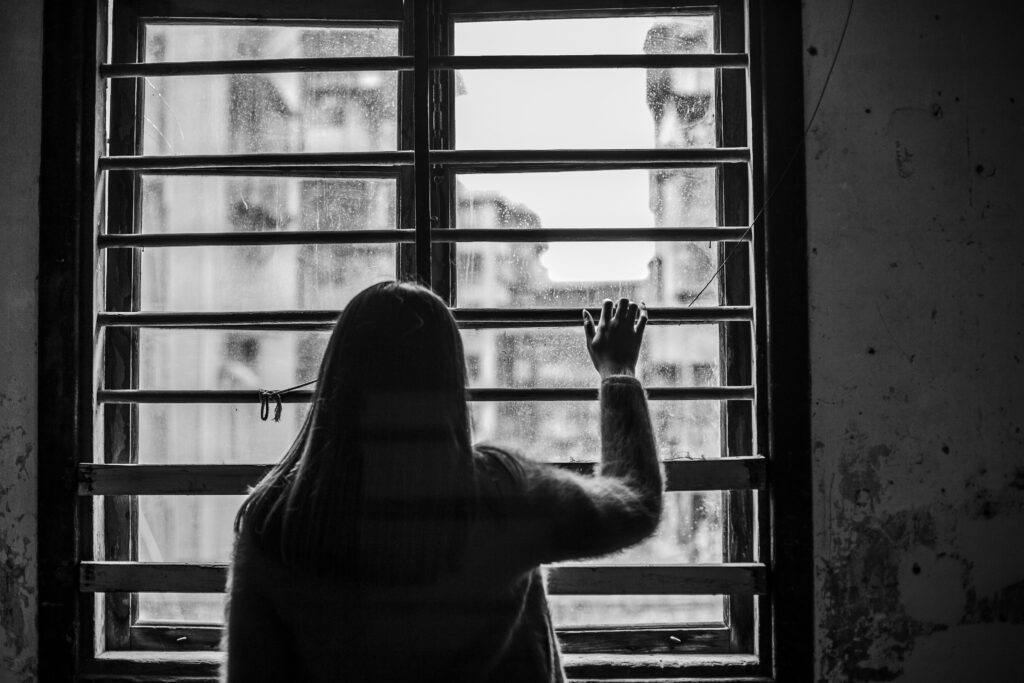According to a 2019 survey by YouGov, 21% of Singaporeans have fear of loneliness (autophobia). Let’s learn about the ways to deal with autophobia to get more happiness in your life.

Autophobic people have an illogical, severe dread of being alone. When they are alone, they may experience this fear. Additionally, some people may have autophobia even when they are with others or in a crowd. In this case, dread is related to worry and isolation. Or they may be concerned about others abandoning them or having to return home alone.
The cause behind the fear of being alone is not always obvious. However, a painful incident in the past, childhood trauma, or interpersonal troubles may have an impact. Here are some of the probable reasons for the pathological dread of loneliness.
Autophobia, like other phobias, may be the result of a traumatic childhood. It might be founded on abandonment concerns such as a parent leaving, a loved one passing away abruptly, or difficult childhood relationships, causing people to grow up with a fear of being alone.
Besides, people getting autophobia may have experienced traumatic events that negatively impact their psychology when they are alone. For example, a burglar broke in when they were at home alone. Or perhaps they have seen a loved one suffer or die as a result of a medical problem without any help. If not treated properly, this may become a problem in their life in the long run. These traumatic events might result in autophobia, and other mental illnesses such as anxiety disorders, and post-traumatic disorder (PTSD).
Neurotransmitters in the brain might react to particular information in unexpected ways, leading your brain to assume that you are in danger from a specific person, thing, or event. Other people who have pre-existing mental health illnesses such as PTSD, schizophrenia, and anxiety disorders may experience panic attacks while they are alone.
A parent’s inclination toward high levels of dread and anxiety might be inherited. Similarly, a youngster may learn to fear the same thing after witnessing a family member’s anxiety about being alone.
The symptoms of autophobia are similar to those of other specific phobias. It entails feeling extremely anxious about spending time alone.
Specific autophobia symptoms may include:
Autophobia can lead to the following behaviors: avoiding being alone, seeking companionship as quickly as possible, and becoming dependent on relationships.
Moreover, autophobic feelings and actions may put a strain on personal relationships. Autophobic people may fear that their loved ones would forsake them and that they will become solitary. If this is the only symptom a person has, it is conceivable that they have a separation anxiety disorder.

Doctors and therapists seek specific worries in patients who may be suffering from autophobia. These anxieties may or may not be connected to the dread of being alone, but they suggest a connection. They might include:
Other criteria will be evaluated as well, such as if someone lives alone, suffers from chronic loneliness, or has experienced long periods of solitude. All of these factors may be an important part of autophobia development.
A doctor will do a physical exam and review the patient’s medical history to confirm autophobia. This helps to check that the worry is not caused by another illness. Autophobic symptoms, like other phobias, must be present for at least 6 months. Furthermore, the dread of being alone must be so acute and consistent that it interferes with normal living and everyday functioning. Loneliness is insufficient to conclude the classification of autophobia.
Behavioral therapies play a key role in phobia treatment. Here are some methods that your doctor may advise you:
In most circumstances, psychotherapy is sufficient to alleviate autophobia. However, medicine can be helpful in reducing a person’s symptoms so that psychotherapy can work more effectively.
At the start of your therapy, your mental health expert may prescribe drugs. They could also tell you to only use it in certain or uncommon short-term settings. Among the drugs widely used to treat autophobia are: Beta-blockers, sedatives, selective serotonin reuptake inhibitors (SSRIs)
Meditation, mindfulness, deep breathing exercises, aromatherapy, and relaxation techniques can all help you overcome your anxiety about being alone. Listening to guided meditations or utilizing a meditation app can also help you self-regulate and reduce anxiety. These relaxation techniques, however, are more of a short-term remedy for gaining control of your anxiety or panic episodes.
Many people who suffer from autophobia find it helpful to learn and apply specific lifestyle practices that allow them to relax the mind, improve attention, reduce anxiety, and restore normal function faster when an autophobic episode strikes.
Yoga, mindfulness meditation, pranayama (deep breathing techniques), different types of semi-strenuous exercise, a purposefully optimistic mindset, and a good diet may help minimize or alleviate autophobia symptoms over time.

Related Articles:
What Is Healing Touch Used For?
Bipolar Disorder: Meaning, Symptoms, Causes, Diagnosis, Treatments
Benefits Of Cognitive Behavioral Therapy